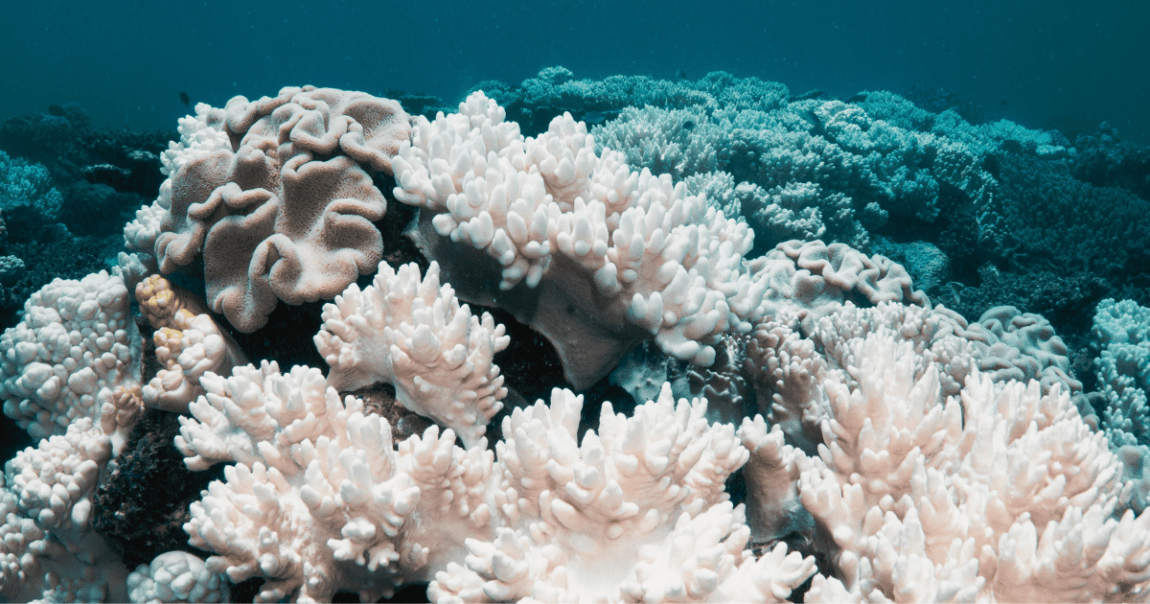
Washed Up
You know what they say — the sixth time’s the charm! Or maybe it’s something about having used six out of nine lives… whichever phrase you choose, scientists say the Great Barrier Reef is suffering its six mass-bleaching event because of heat waves caused by climate change, according to an Axios report published yesterday.
“More than half of the living coral cover that we can see from the air is severely bleached completely white and can have signs of fluorescence in the colors of pink, yellow and blue,” Neal Cantin, coral biologist at the Australian Institute of Marine Science, said in a reef health update video posted to YouTube yesterday.

The bleaching was already so bad that the United Nations Educational, Scientific and Cultural Organization (UNESCO) said the reef should be placed on a list of endangered world heritage sites, and the new developments certainly don’t seem to be headed in the right direction.
Coral reefs usually bring to mind tropical waters, shimmering ocean and brightly colored fish. Right now though, the reef may have more in common with the frozen waters of the Arctic and ice shelves of Antarctica. Heat waves struck both poles and caused alarming, record-breaking warming last week. Immediately after, news hit that a city-sized ice shelf in Eastern Antarctica had collapsed.
Oceanic Panic
If it all sounds a little bleak, we get it. But there’s still an opportunity to seize the current political moment and harness it to help the environment. While Russia continues its violent, bloody and unprovoked invasion of Ukraine that’s causing untold numbers of civilian casualties as well as contributed to global gas price and inflation spikes, the need for clean, green American energy independence has never been greater.
Given that solar and wind jobs are already among the fastest-growing in the US, now is the time to sink massive investments in infrastructure — for the environment, for climate change and to provide income to Americans who need better-paying jobs.
More on climate change: The Sea Ice That Protects Antarctic Glaciers Just Completely Shattered, Scientists Say